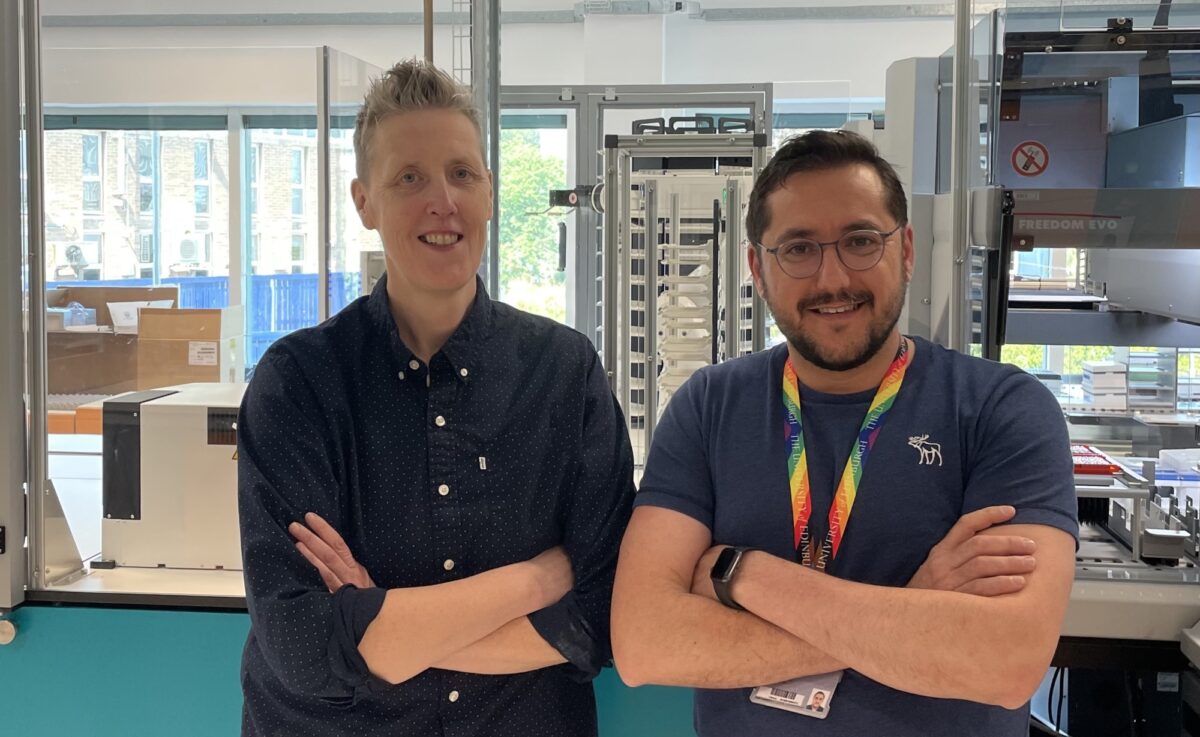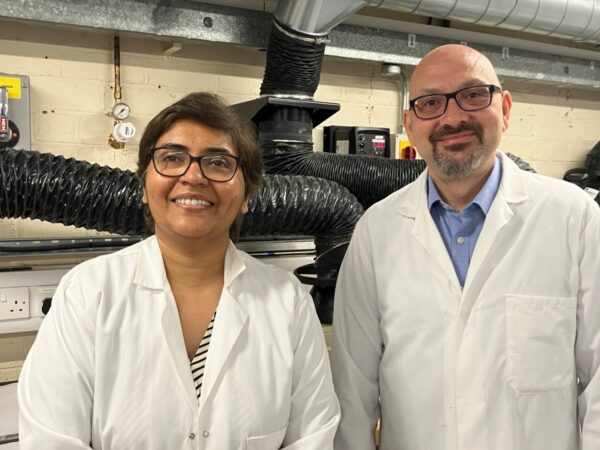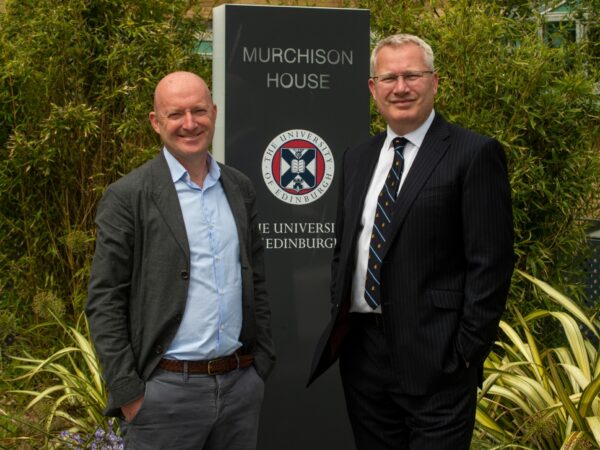
A research team developing enzyme replacement therapies for people with rare diseases has been awarded £74,600 in funding from Scotland’s national economic development agency, Scottish Enterprise.
ZYTHERA (enZYme THERApeutics), a research project led by a team of University of Edinburgh scientists, is engineering enzyme replacement therapies (ERTs) for lysosomal storage diseases (LSDs) using generative artificial intelligence (AI).
The enzymes are screened on a mammalian protein expression system, also developed at the University of Edinburgh, that uses an industry-leading cell platform system.
LSDs are rare, inherited disorders caused by mutations in genes encoding lysosomal enzymes – the enzymes that break down chemicals within a cell. They affect less than five in every 10,000 people but are most common in infants and children.
In LSD patients, enzymatic deficiencies lead to the accumulation of substrates (molecules acted upon by enzymes) within the lysosome, which ultimately cause progressive organ damage and death.
ERTs are the standard-of-care for LSDs, but current therapies are very expensive to manufacture and are not typically effective. Furthermore, scarcity of funding and time-consuming R&D means that new treatments are often delayed and take over a decade to reach the clinic.
The ZYTHERA team is being led by Dr Giovanni Stracquadanio, Senior Lecturer in Synthetic Biology and co-director of the Edinburgh Genome Foundry (EGF), and Professor Susan Rosser (both pictured above), also co-director of EGF and Chair of Synthetic Biology in the School of Engineering, who developed the protein expression system.
Dr Stracquadanio said:
We are addressing the issues that complicate ERT treatments by using an AI-driven approach to generate new ERTs with desirable sequence, structural and biochemical features. Our automated experimental platform can rapidly build and test hundreds of ERTs in a matter of weeks, and can then inform our AI to refine ERT design.
Our technology means that enzyme screening can be done accurately, at speed, and for a fraction of the cost of traditional R&D, and we hope that these cost savings will lead to cheaper treatments.”
The technology was developed as part of Dr Stracquadanio’s £1.4 million UKRI EPSRC Fellowship, and draws on Professor Rosser’s pioneering expertise in mammalian synthetic biology and biologics manufacturing. The team is being advised on matters of IP, business development and fundraising by Edinburgh Innovations, the University of Edinburgh’s commercialisation service, and by commercial champion Dr Michael Roberts.
The funding, from the Scottish Enterprise High Growth Spin-Out Programme (HGSP), will be used to speed up the commercialisation of the technology and enable ZYTHERA to spin out.
Leah Pape, Head of Entrepreneurship and Investment at Scottish Enterprise said:
Scotland is globally renowned for its strengths in life sciences thanks to the pioneering research carried out in our world-class universities and our ability to deliver solutions to global problems. Scottish Enterprise is pleased to support this ground-breaking project which has the potential to develop truly life-changing benefits for those affected by rare lysosomal storage diseases.”
Professor Rosser said:
By harnessing the power of AI and combining our team’s areas of expertise, we hope to deliver effective, affordable treatments to an underserved patient community, and to become a disruptive player in the ~$8 billion ERT market.”
Find out more about ZYTHERA
About Scottish Enterprise
Scottish Enterprise (SE) is Scotland’s national economic development agency and a non-departmental public body of the Scottish Government. It supports businesses to innovate and scale to transform the Scottish economy by focusing on new market opportunities through targeted investment, innovation and internationalisation.
Follow us on Twitter at http://twitter.com/scotent and https://twitter.com/ScotEntNews
Follow us on LinkedIn at https://www.linkedin.com/company/scottish-enterprise/


